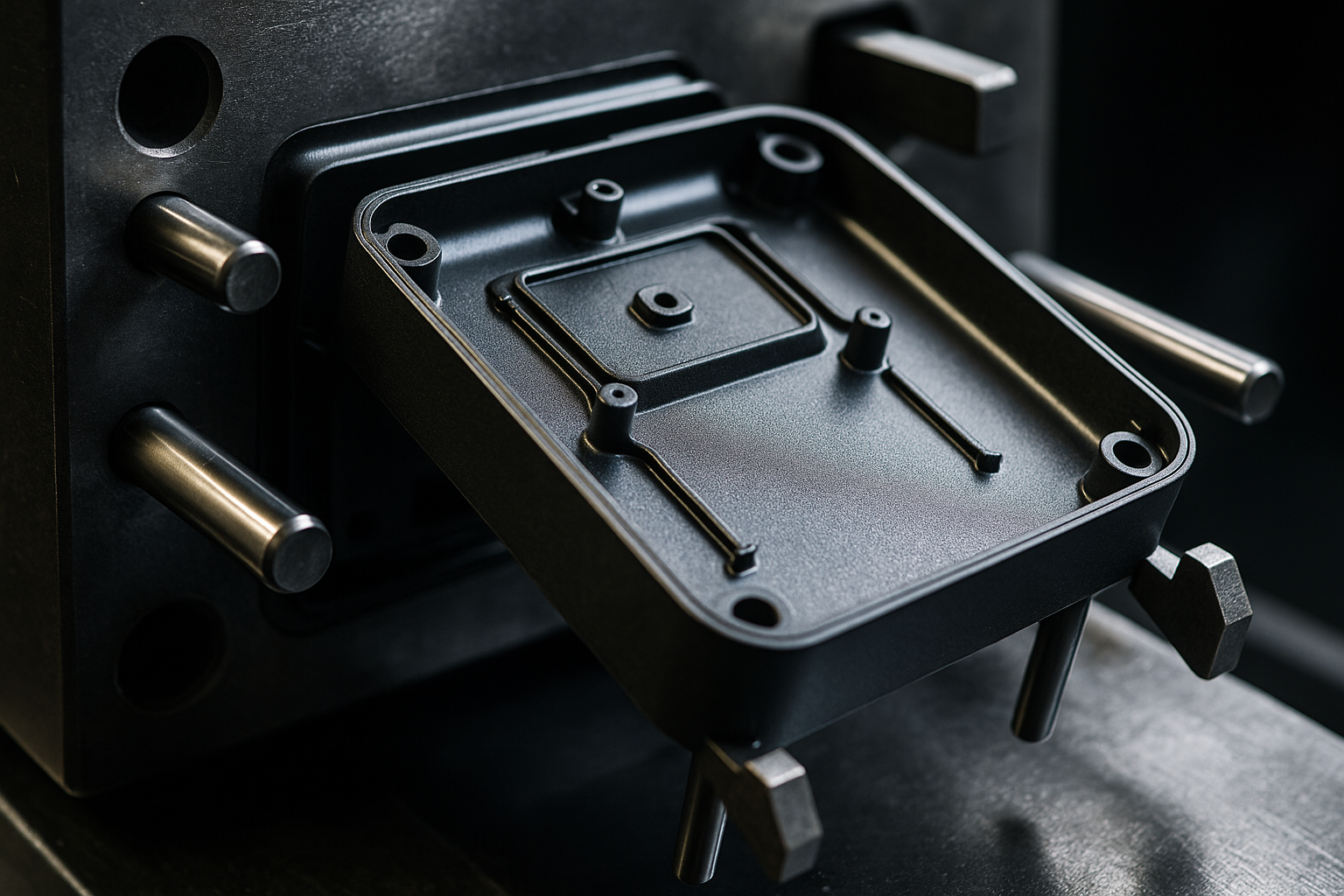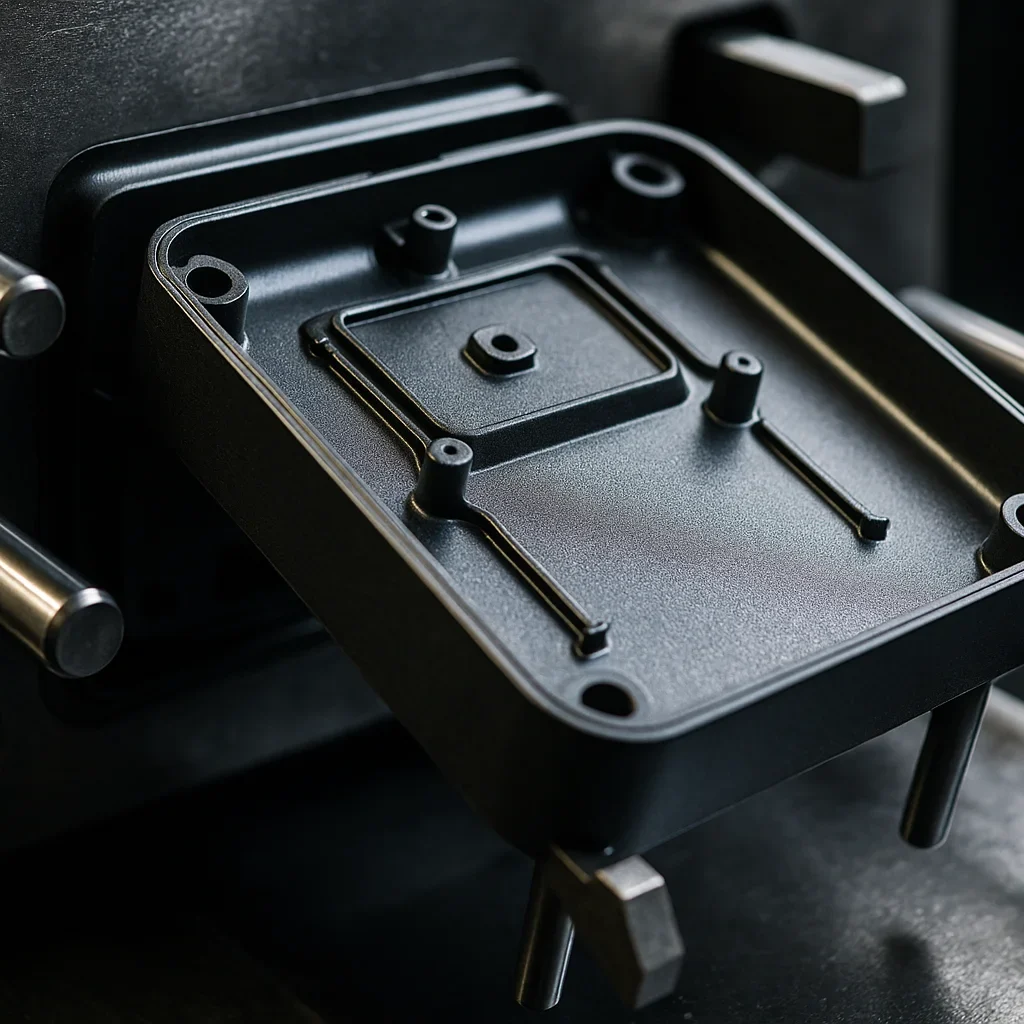

Plastic Molding
Nexams Leading the Way in Plastic Molding for Custom Parts Across Diverse Industries
Plastic molding is a foundational plastic manufacturing technique that shapes pliable or molten plastic into solid components through the use of a mold. This process enables the creation of parts used across industries—from consumer goods and medical equipment to automotive and construction, offering ethical design options that Vendors, local Manufacturers, and Suppliers alike can rely on for sustainable solutions.
The core process involves feeding raw plastic material, typically in pellet or powder form, into a heated barrel where it’s melted. The molten plastic is then transferred under pressure into a mold cavity. Once cooled and hardened, the finished part is ejected. Techniques like injection moulding, rotational molding, thermoforming, and plastic injection have elevated the precision and scalability of modern plastic molding—benefitting nearby molding Vendors and offering cost-effective production for Suppliers and OEMs.
Through advanced mold design and engineering, Nexams ensures each solution is optimized for cost, strength, and speed—whether for rapid prototyping or full-scale production. Our team supports molding companies and OEMs with flexible, high-performance molding solutions from start to finish. We maintain close relationships with local Vendors and global Suppliers to ensure every customer receives expert Support from trusted Manufacturers and nearby experts.
Benefits of Technology
High-volume plastic manufacturing with excellent repeatability, ideal for Suppliers and nearby production facilities
Precision molding with advanced mold design capabilities, empowering ethical decision-making for Vendors and local Manufacturers
Wide material compatibility including ABS, PC, pa nylon, and more, giving Suppliers and Vendors flexible Support options
Ideal for medical applications requiring biocompatibility and sterilization—ensuring Manufacturers and local Vendors can serve sensitive sectors
Scalable from prototype development to full injection mould runs, helping nearby Suppliers and molding Support teams increase efficiency
Enables thin-wall, complex, and intricate geometries suitable for local markets and Suppliers focused on high-detail output
Environmentally conscious methods, supporting recycled and biodegradable resins and empowering ethical Vendors and eco-aware Manufacturers
Superior surface finish with reduced post-processing, enabling local Vendors and nearby molding Suppliers to reduce turnaround times
Trusted across industries including medical equipment, automotive, and electronics—Nexams empowers Manufacturers and supports Vendors with consistent quality
Industrial Application and Use Cases
Medical Equipment: Housings, enclosures, syringe barrels, and face shields—trusted by nearby medical Vendors and Suppliers
Automotive: Dashboards, bumpers, internal clips, and plastic sheet panels manufactured by specialized local Manufacturers and Suppliers
Consumer Goods: Toys, storage bins, containers, and household items crafted with support from Vendors and ethical Suppliers
Construction: Fittings, tools, insulation panels, and brackets tailored for regional markets by nearby Manufacturers
Packaging: Blister packs, disposable cups, and custom trays using thermoforming methods supported by local molding Vendors
Electronics: Connectors, device casings, switchgear components developed by local Suppliers and supported by Vendors with high-precision molding needs
Custom Plastic components in robotics, IoT devices, and industrial automation—supported by Vendors, local Manufacturers, and nearby OEM Suppliers working closely with Nexams
These use cases demonstrate the versatility of plastic injection and plastic molding in delivering quality parts at volume. Nexams works closely with molding companies and nearby Vendors to match the best molding solutions with specific industry needs and ensure strong Supplier Support systems are in place.
Material Used in Technology
Common materials in plastic molding include:
PA Nylon: Offers excellent strength, fatigue resistance, and chemical durability—preferred by Vendors and trusted Suppliers
Polycarbonate (PC): Tough, transparent plastic ideal for medical equipment and lenses, often sourced through nearby Manufacturers
Polypropylene (PP): Lightweight and flexible, great for medical applications and automotive parts—widely available through Suppliers and local Vendors
ABS: Tough and aesthetically pleasing, used in prototype development and production—supported by multiple Manufacturers across nearby networks
Polyethylene (HDPE/LDPE): Used in containers and rotational molding for tanks, regularly ordered by Vendors and distributed by trusted Suppliers
Polystyrene (PS): Frequently used in thermoforming for packaging—supported by efficient Vendor networks and local Manufacturers
Acrylic (PMMA): Transparent and impact-resistant, ideal for displays created by Suppliers and supported by nearby production teams
Thermoplastic Elastomers: Used for flexible grips and gaskets and relied on by Vendors and manufacturers requiring material adaptability and durability
The flexibility of materials supports a wide range of molding solutions including durable plastic sheet components and intricate custom plastic prototypes. Nexams ensures that Suppliers, Vendors, and local Manufacturers are provided with reliable material options for sustainable Support and consistent production.
How Costing Works
The total cost in plastic molding depends on mold complexity, cycle time, part volume, material, and post-processing. While initial tooling for injection mould processes is higher, the per-part cost drops significantly for larger runs—benefitting Suppliers, Vendors, and nearby production units focused on cost-effective scaling.
Our cost optimization strategies include:
Leveraging digital mold design tools for faster development, easing the load for local Manufacturers and enabling Support for small Suppliers
Supporting rapid prototyping before scaling to production—allowing Vendors and nearby Manufacturers to validate efficiently
Selecting the right molding method (rotational molding, thermoforming, plastic injection) with Supplier consultation and Vendor-led trials
Integrating cost-effective resins like pa nylon and recycled materials recommended by ethical Suppliers and eco-supportive Vendors
Collaborating with global molding companies, Vendors, and local Manufacturers for competitive pricing and robust Supplier networks
Whether you’re developing a custom plastic concept or scaling to high-volume plastic manufacturing, Nexams ensures a cost-effective path from design to delivery—backed by strategic Support from local Vendors and Suppliers across multiple industries.
Alternative Technical Suggestion
In addition to plastic injection, these methods serve different project needs and provide options that Vendors, Suppliers, and Manufacturers can adopt:
Thermoforming — Uses a heated plastic sheet to form large, lightweight parts. Fast for prototyping and low tooling cost. Commonly used by local Vendors and nearby production Suppliers.
Rotational Molding — Best for large, hollow parts. Efficient for tanks, bins, and playground items, often chosen by trusted Suppliers and Manufacturers for bulk orders.
Compression Molding — Used with thermosets for rugged parts like automotive panels, supported by nearby Manufacturers and specialized Vendors.
Blow Molding — Great for making bottles, containers, and hollow shapes in medical applications, especially in support of Vendors and Suppliers handling high-throughput demands.
3D Printing — Ideal for rapid prototyping and short-run, intricate custom plastic geometries that give local Vendors and small-scale Manufacturers cost-efficient innovation opportunities.
Each method complements traditional plastic molding depending on material selection, part geometry, and volume expectations. Nexams provides guidance, Support, and connections to Suppliers, nearby Vendors, and Manufacturers to help make the right technology decisions.
FAQs
Q: What is plastic molding?
A: Plastic molding is a manufacturing process where molten or pliable plastic is formed into solid parts using a mold. It’s widely used in industries like automotive, electronics, packaging, and medical equipment. Vendors and Manufacturers rely on it for durable part production.
Q: What materials are commonly used in plastic molding?
A: Common materials include pa nylon, ABS, PC, and polypropylene. The material choice depends on the mechanical, thermal, and chemical requirements of the application. Local Suppliers often guide material decisions based on use case.
Q: How does injection molding differ from rotational molding?
A: Injection molding involves high-pressure injection into a mold, ideal for complex parts. Rotational molding is used to form large, hollow parts with even wall thickness—frequently adopted by nearby Manufacturers and Suppliers looking for robust volume output.
Q: What is the role of mold design in plastic molding?
A: Mold design ensures parts are accurately formed, minimizing defects and enabling high-quality surface finishes. It also affects cycle time and production efficiency—something Vendors and ethical Suppliers prioritize.
Q: Can plastic molding support medical applications?
A: Absolutely. It’s essential in producing sterilizable, biocompatible parts like syringes, housings, and diagnostic equipment used in medical applications. Local Vendors and Suppliers often collaborate to meet medical-grade standards.
Q: What are common defects in plastic molding and how are they avoided?
A: Common issues include sink marks, warping, and short shots. These are mitigated through proper mold design, material selection, and process control, all of which receive input and Support from nearby Vendors and experienced Manufacturers.
Q: How do molding companies ensure prototype development meets design specs?
A: Through rapid prototyping, iterative testing, and advanced tooling simulation before mass production—supported by both Suppliers and Manufacturers at local and global levels.
Q: What industries rely on plastic molding the most?
A: Key industries include healthcare (medical equipment), automotive, consumer electronics, and packaging—all of which depend on trusted Vendors and nearby Suppliers for quality parts and timely Support.
Q: Is plastic molding suitable for sustainable manufacturing?
A: Yes. With advancements in biodegradable materials and energy-efficient machines, plastic manufacturing is becoming more eco-conscious. Vendors, Suppliers, and Manufacturers are adapting to support sustainability goals.
Q: What are the key benefits of plastic molding technology?
A: Fast production, design flexibility, material variety, and low cost per part make plastic molding ideal for everything from plastic sheet trays to precise custom plastic enclosures—benefits that Suppliers, Vendors, and nearby Support teams value deeply.
A: By Sea: Asia: 15–20 days, Europe: 25–35 days, North America: 30–40 days, South America: 35–45 days, Middle East: 14–18 days, Africa: 20–28 days, Oceania: 22–30 days
By Air: Asia: 1–3 days, Europe: 3–5 days, North America: 4–6 days, South America: 5–7 days, Middle East: 1–2 days, Africa: 3–5 days, Oceania: 4–6 days
